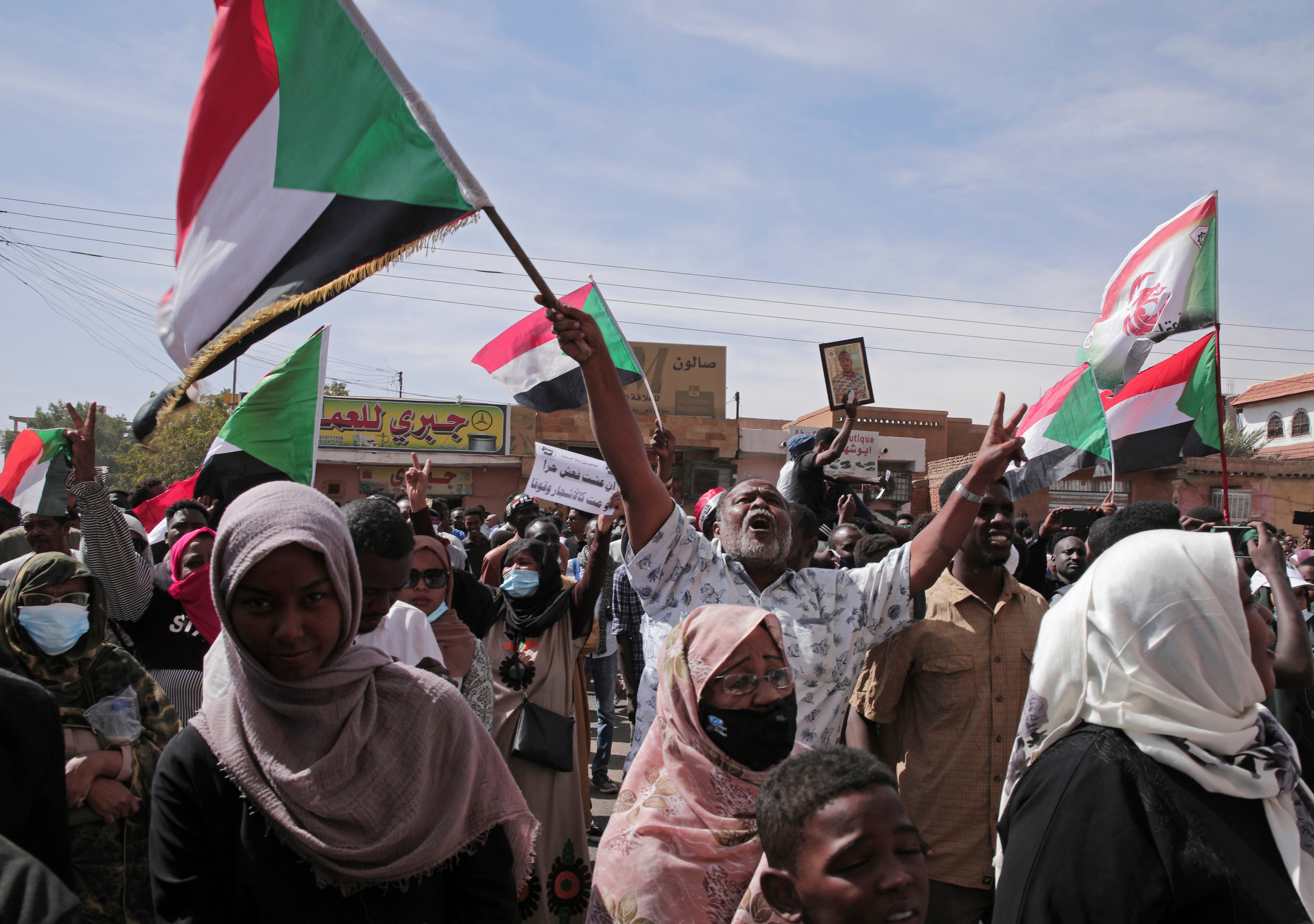Sudan pro-democracy groups call for mass anti-coup protests
Sudanese pro-democracy groups are calling for mass anti-coup protests as the country plunges further into turmoil following the prime minister's resignation earlier this week

Your support helps us to tell the story
From reproductive rights to climate change to Big Tech, The Independent is on the ground when the story is developing. Whether it's investigating the financials of Elon Musk's pro-Trump PAC or producing our latest documentary, 'The A Word', which shines a light on the American women fighting for reproductive rights, we know how important it is to parse out the facts from the messaging.
At such a critical moment in US history, we need reporters on the ground. Your donation allows us to keep sending journalists to speak to both sides of the story.
The Independent is trusted by Americans across the entire political spectrum. And unlike many other quality news outlets, we choose not to lock Americans out of our reporting and analysis with paywalls. We believe quality journalism should be available to everyone, paid for by those who can afford it.
Your support makes all the difference.Sudanese pro-democracy groups called Tuesday for mass anti-coup protests as the country plunged further into turmoil following the resignation of the prime minister earlier this week.
Prime Minister Abdalla Hamdok was ousted in a coup in October, only to be reinstated a month later following a deal with the military meant to calm tensions and anti-coup protests. Hamdok stepped down Sunday amid political deadlock, saying he had failed to find a compromise between the ruling generals and the pro-democracy movement.
Sudan has been politically paralyzed since the Oct. 25 coup. The military takeover came more than two years after a popular uprising forced the removal of longtime autocrat Omar al-Bashir and his Islamist government in April 2019.
The military, under international pressure, reinstated Hamdok in November to lead a technocratic Cabinet in a deal that sidelined the pro-democracy movement behind the uprising against al-Bashir. Since then, Hamdok was unable to form his Cabinet amid relentless protests not only against the coup but also against his deal with the military.
Authorities have closed major roads and streets in the capital of Khartoum and its twin city of Omdurman ahead of the protests, according to activists. Such tactics have been employed in the past two months to prevent demonstrators from reaching government buildings.
Since the coup, nearly 60 protesters have been killed and hundreds of others injured in a heavy security crackdown, according to a Sudanese medical group. The protests are called by the Sudanese Professionals Association and the Resistance Committees, which were the backbone of the uprising against al-Bashir.
The protest movement insists on a fully civilian government to lead the transition, a demand rejected by the generals who say power will be handed over only to an elected government. Elections are planned in July 2023, in line with a constitutional document governing the transitional period.
U.N. Secretary-General Antonio Guterres called for “meaningful dialogue” between all Sudanese parties to “reach an inclusive, peaceful and lasting solution,” according to U.N. spokesman Stéphane Dujarric.
Deliberations have been underway to find “an independent figure” to lead a technocratic Cabinet through elections, according to a military official and a protest leader. They spoke on condition of anonymity to discuss the negotiations. Among names floated was that of former Finance Minister Ibrahim Elbadawi.
Elbadawi, who resigned in 2020, was not immediately available for comment.
Jibril Ibrahim, a rebel leader who joined Hamdok’s government last year following a peace deal with the transitional administration, urged for a “political compromise” to resolve the crisis.
“Let us agree to work together for the sake of Sudan,” tweeted Ibrahim.
Gen. Abdel-Fattah Burhan, head of the ruling Sovereign Council, said an independent Cabinet with “specific tasks” would be formed as the executive branch of the transitional government. The military, he said, would “protect the democratic transition" until Sudan is able to hold free and fair elections.